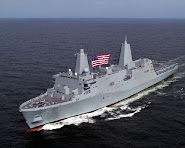A mere "thank you" seems so inadequate however I most sincerely thank you, those who have gone on and to those who remain, the VETERANS
July 14, 1861
Camp Clark,
Washington
My very dear Sarah:
The indications are very strong that we shall move in a few days—perhaps tomorrow. Lest I should not be able to write again, I feel impelled to write a few lines that may fall under your eye when I shall be no more . . .
I have no misgivings about, or lack of confidence in the cause in which I am engaged, and my courage does not halt or falter. I know how strongly American Civilization now leans on the triumph of the Government and how great a debt we owe to those who went before us through the blood and sufferings of the Revolution.
And I am willing—perfectly willing—to lay down all my joys in this life, to help maintain this Government, and to pay that debt . . .
Sarah my love for you is deathless, it seems to bind me with mighty cables that nothing but Omnipotence could break; and yet my love of Country comes over me like a strong wind and bears me unresistibly on with all these chains to the battle field.
The memories of the blissful moments I have spent with you come creeping over me, and I feel most gratified to God and to you that I have enjoyed them for so long. And hard it is for me to give them up and burn to ashes the hopes of future years, when, God willing, we might still have lived and loved together, and seen our sons grown up to honorable manhood, around us.
I have, I know, but few and small claims upon Divine Providence, but something whispers to me—perhaps it is the wafted prayer of my little Edgar, that I shall return to my loved ones unharmed. If I do not my dear Sarah, never forget how much I love you, and when my last breath escapes me on the battle field, it will whisper your name.
Forgive my many faults and the many pains I have caused you. How thoughtless and foolish I have often times been! How gladly would I wash out with my tears every little spot upon your happiness . . .
But, O Sarah! If the dead can come back to this earth and flit unseen around those they loved, I shall always be near you; in the gladdest days and in the darkest nights . . . always, always, and if there be a soft breeze upon your cheek, it shall be my breath, as the cool air fans your throbbing temple, it shall be my spirit passing by.
Sarah do not mourn me dead; think I am gone and wait for thee, for we shall meet again . . .
Sullivan Ballou was killed a week later at the first Battle of Bull Run, July 21, 1861.
When he died, his wife was 24. She later moved to New Jersey to live out her life with her son, William, and never re-married. She died at age 80 in 1917.Sullivan and Sarah Ballou are buried next to each other at Swan Point Cemetery in Providence, RI. There are no known living descendants.
In Flanders Field
In Flanders fields the poppies blow
Between the crosses, row on row,That mark our place; and in the sky
The larks, still bravely singing, fly.Scarce heard amid the guns below.
We are the dead.
We are the dead.
Short days ago We lived, felt dawn, saw sunset glow,
Loved, and were loved, and now we lie
In Flanders fields.
Take up our quarrel with the foe:
Take up our quarrel with the foe:
To you from failing hands we throw
The torch; be yours to hold it high.
If ye break faith with us who die
We shall not sleep, though poppies grow
In Flanders fields
This was the poem written by World War I Colonel John McCrae, a surgeon with Canada 's First Brigade Artillery. It expressed McCrae's grief over the "row on row" of graves of soldiers who had died on Flanders ' battlefields, located in a region of western Belgium and northern France. The poem presented a striking image of the bright red flowers blooming among the rows of white crosses and became a rallying cry to all who fought in the First World War.
It is the Veteran
It is the Veteran, not the preacher, who has given us freedom of religion.
It is the Veteran, not the reporter, who has given us freedom of the press.
It is the Veteran, not the poet, who has given us freedom of speech.
It is the Veteran, not the campus organizer, who has given us freedom to assemble.
It is the Veteran, not the lawyer, who has given us the right to a fair trial.
It is the Veteran, not the politician, who has given us the right to vote.
It is the Veteran, who salutes the Flag,
It is the Veteran, who serves under the Flag.
Whose coffin is draped by the Flag
















No comments:
Post a Comment